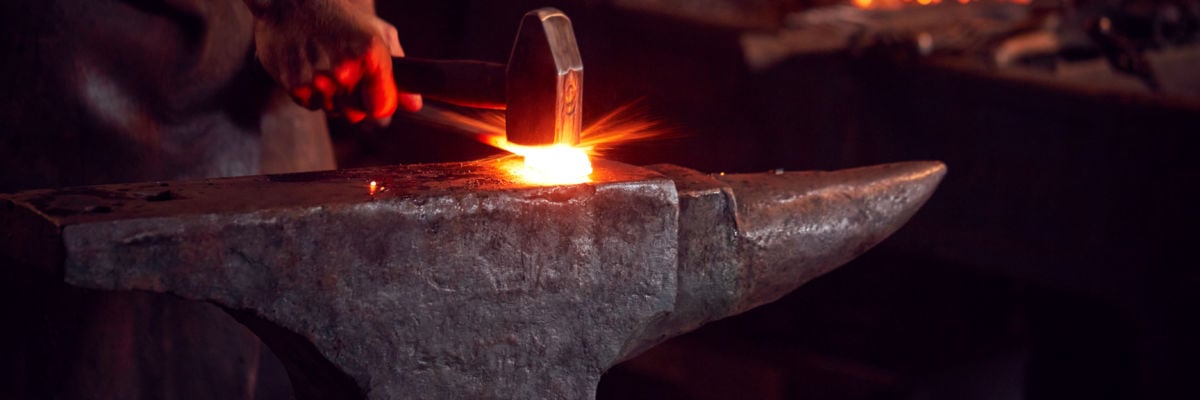
The Church marks May 1 as the Optional Memorial of St. Joseph the Worker. Pope Pius XII introduced the feast in 1955, at a time when communism was claiming to be the spokesman of the “workers” and had marked May 1 as International Labor Day.
Catholicism has a lot to say about labor, and not just in reaction to Marxism. Let’s look at just one source: the Book of Genesis.
First, God wants you to work. Work is part of creation, not primarily a punishment for sin.
When God created the human person in his image and likeness, he immediately conferred two blessings upon him, both connected with creation. The first was fertility: God blessed man and woman with fertility (“be fruitful and multiply,” Gen. 1:28) because God created people as the apex of his material creation, and he intends human beings to be co-creators under him in continuing to bring human persons into the world.
The second was dominion: God blessed man and woman with the world, to “subdue it” and to “rule over . . . every living creature.” Dominion is not abuse or exploitation; God put man over the world as God’s steward, to care for that common home, to be the creature with reason and will who sums up and sings the canticle of praise on behalf of all creation entrusted to him.
To subdue the world involves effort. It involves work. God’s world is a little like IKEA: some assembly required. There’s a tree, and here’s your brain: figure out whether you need a house or a table and then how to turn that tree into one.
We need to remember that God put man in charge of the world. Perhaps he’s sometimes not lived up to his responsibilities, but, from a Christian worldview, man is not just one species among many, perhaps with a heavy carbon footprint. That is a vital point to remember in the face of a secular environmentalism that advocates a specious species equality and denies the God-given uniqueness of the human person.
There are two accounts of creation in Genesis: Genesis 1 and Genesis 2-3. They are not contradictory. They accentuate different sides of God’s creative work while maintaining the essential elements of the teaching.
In Genesis 2, which is more “anthropomorphic” (i.e., attributes more human characteristics to God), we are at the moment after the creation of the world but before the creation of man (parallel to the morning of Genesis 1’s “sixth day”). Genesis 2 says “no plant had yet sprung up” because “there was no one to work the ground” (v. 5). God creates the man and plants a garden “in the east, in Eden” (v. 8). “The Lord God took the man and put him in the Garden of Eden to work it and take care of it” (v. 15).
That’s the same point as Genesis 1:28: God didn’t put man in Paradise just to sit there. He also was to tend it and, in obedience to God and God’s order, cultivate what he’d been given.
So, although it might feel like it on Monday mornings, work is not a punishment. Work is God’s gift whereby human beings share in God’s work of creation. Human beings, made in God’s image and likeness (which includes being reasoning and being responsible), are given stewardship over a world in which creation is an ongoing work.
In his encyclical Laborem exercens (especially paragraphs 4-7), Pope St. John Paul II emphasizes this aspect of work. By sharing in God’s ongoing creative work, man reflects God’s image and likeness. He also fulfills himself, because God intended for man to be creative, active and not passive, within a normative moral order God established.
Second, work can be punishing. You say, “Yeah, but work is hard! My job is boring! I’m stuck! And doesn’t the Bible say work is punishment?”
The Bible does speak about punishment as a consequence of sin. But we need to understand something about the nature of that punishment. God “punishes” us in the sense that he allows the consequences of sin to befall us. It’s not that he imposes some arbitrary “punishment” on us from a variety of options—e.g., he could have made us grow a second head, but he chose instead to threaten Adam and Eve with death for sinning.
But death is not some divine caprice. Sin cuts us off from God, who is the source of life. If you choose to cut yourself off from life, what naturally will follow is … death.
Same with work (and childbirth). When God tells Adam he will “earn the bread he eats by the sweat of his brow” (3:19), He is telling him that his relationship with creation is also now disturbed. He was created to cultivate creation, but in choosing created goods without reference to God, he warped his relationship with them, and creation pushes back. The terms of creation have changed. The IKEA pieces were made in China, not Sweden: some don’t easily match. And the instructions are all in Japanese.
Work is still creative, but that creativity now exacts a toll, a price. Eating off the world now is challenged by bad harvests, hard labor, drought, and flood. Peopling the world with new persons happens in pain, and the moral lens gets flipped upside-down: people now call God’s blessing of childbearing a curse.
Third, because work is part of creation, it is the lot of every man. So often we forget that Genesis is also the charter of human equality: this is God’s design plan for all human beings. God intended all people to work as an expression of their participation in creation. They may work in different ways, but the Genesis perspective should compel us to adjust our sights to the nobility of every honest job. Analyst Oren Cass speaks of the “work respect gap.” When people ask, “So what do you do?” the question is often as much one about where to peg this person on the social ladder as about information. We all paid lip service to “essential workers” during COVID, when the mental leadership that previously exported manufacturing jobs abroad suddenly found they needed manual laborers to ensure the availability of toilet paper while they sheltered in place.
Jesus grew up in a working man’s house. His foster father worked with his hands and most likely taught his adopted son some of that trade. He probably sometimes had to live from payment to payment, between the table made for Yitzhak and the chair for Jaakov. But Joseph is a model for the nobility of honest labor. Let his feast be a day for abolishing the “work respect gap.”



